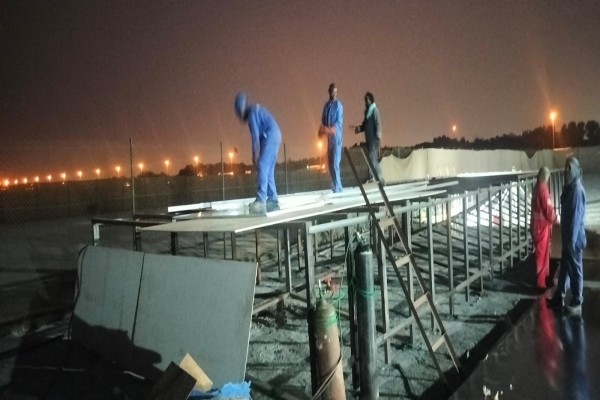When the world discusses the future of international trade, the conversation is widely centered on ship building companies. These companies have a major role in facilitating smooth transportation of products across seas, linking markets and allowing supply chains to operate effectively. VU Marine is one such company that is a testament to how the sector is modeling logistics and accepting new challenges.
Market Growth and Trends
The world shipbuilding industry keeps expanding at a steady pace. Its worth was approximately over USD 160 billion in 2024, and estimates indicate it will be in excess of USD 200 billion by 2030. Growth rates are in the range of 3 to 5 percent annually, indicative of consistent growth in the heavily capital-intensive shipbuilding industry.
Most of this need is driven by global trade. More than 80 percent of world goods by volume are carried by ships. For ship building companies in UAE and other Asian and European ship building firms, this need offers opportunities to supply the fleets that keep the world economy going. VU Marine leverages these trends through its emphasis on clean and efficient designs.
Regional Landscape
Worldwide, ship construction is dominated by Asia with nations such as China, South Korea, and Japan, producing over half the world’s output. China alone produces over 50 percent of global ship tonnage. Although the dominance is evident, other regions such as the Middle East are also coming to the fore with ship manufacturing companies in UAE investing in new yards and facilities.
This geographic imbalance is both a challenge and an opportunity. For VU Marine, rivaling the largest shipyards is not so much a matter of size as specialization—producing agile and innovative ships adapted to logistics needs.
Impact on Logistics
The connection between shipbuilding and logistics is simple: what is built today in ships dictates how goods are moved tomorrow.
- Capacity Expansion
Each new ship adds to worldwide cargo capacity. VU Marine concentrates on layouts that achieve efficiency without unnecessary expense, so logistics channels continue to flow smoothly even when demand does increase. - Environmental Issues
Shipping contributes around 3 percent of worldwide greenhouse gas emissions. Rules are becoming stricter, and logistics companies need to be more responsive. By providing ships that burn less fuel and use cleaner technologies, VU Marine enables businesses to achieve sustainability targets. - Operational Efficiency
Shipbuilding today focuses on smart aspects—computerized systems, automation, and streamlined hull designs—that reduce turnaround time at ports. To logistics companies, this translates into quicker delivery cycles. - Cost Control
Increasing freight prices are a worldwide problem. More efficient ships save on fuel charges and help logistics operators boost profitability.
Challenges Ahead
Shipbuilding is not without challenges. Unpredictable steel prices, shortages of workers, and complicated supply chains all contribute to delays. Stringent environmental regulations also require substantial investment in research and development.
It is here that marine service in UAE play their value-adding role, assisting fleets with maintenance, retrofitting, and compliance solutions. VU Marine itself meets challenges by incorporating sustainable practices within its own production process.
Innovation and the Future
The second stage of shipbuilding is characterized by technology. Automation at shipyards, predictive maintenance using artificial intelligence, and sophisticated propulsion systems are revolutionizing the way ships are constructed and used.
For the stakeholders in the logistics industry, this translates to more consistent shipping schedules, improved cost control, and reduced delays. VU Marine is already testing such innovations, keeping its ships viable in a competitive market that continues to be ecologically friendly.
Strategic Outlook for Logistics
For supply chain managers, the direction of shipbuilding is critical:
- Capacity Forecasting: As world fleets are increasing, space will be available on cargo to accommodate rising demand.
- Sustainability: Companies that align with environmentally friendly shipbuilders have a competitive edge in complying with regulations.
- Diversification: Such heavy dependence on Asia holds risks if something is interrupted. Having dealings with builders outside of dominant areas, such as the top shipbuilding companies, adds strength.
Conclusion
Shipbuilding is not just steel and engineering—shipbuilding is the lifeblood of international logistics. Each ship delivered has a ripple effect on capacity, cost, and environmental performance throughout the supply chain.
VU Marine embodies the future of this industry: innovative, sustainability-focused, and attuned to logistics requirements. Its model demonstrates how shipbuilding can evolve in response to international pressures while enabling efficient and green transport.
With global trade expanding and supply chains changing, shipbuilding will continue to play a vital role in defining logistics. Thanks to players like VU Marine, the sector will be positioned to help deliver a smarter, more sustainable, and resilient future for international trade.









